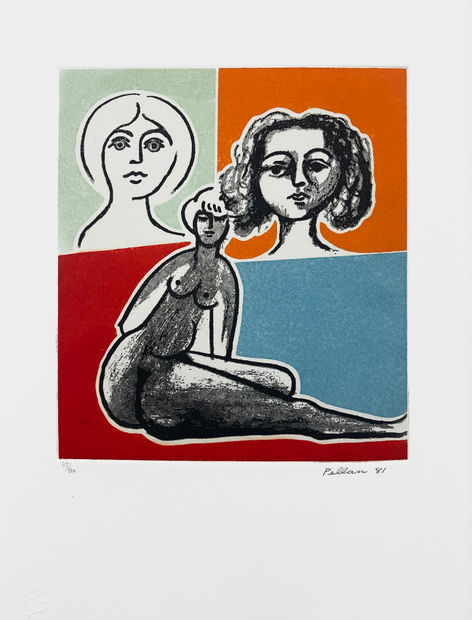Alfred Pellan (1906–1988) was born in Quebec City and showed early artistic talent, selling his painting Corner of Old Quebec to the National Gallery of Canada at age 17. In 1926, he received the first fine arts scholarship and moved to Paris, studying at the École nationale supérieure des Beaux-Arts and several private academies.
Pellan taught at the École des Beaux-Arts in Montreal until 1944, later illustrating poetry books and designing theatre sets and costumes. He was also a leader of the short-lived Prisme d'Yeux (1948), a group that sought an art "freed from all bonds of time and place, and of restrictive ideology ... that can adulterate its expression or compromise its purity." In 1952, Pellan earned a Royal Society of Canada scholarship, returning to Paris, where he exhibited 181 works at the Musée d’Art Moderne and participated in the Venice Biennale.
Upon returning to Canada, Pellan introduced surrealist ideas to Canadian art, emphasizing creativity from the subconscious and childlike imagination. A major influence on younger artists, his work was widely exhibited, and he created murals for galleries and public spaces across Canada. Pellan received many honors, including the Companion of the Order of Canada (1967), the Paul-Émile Borduas Prize (1984), and was named an Officer of the National Order of Quebec (1985). Pellan had exhibited in over one hundred exhibitions abroad, strengthening his international reputation.

















